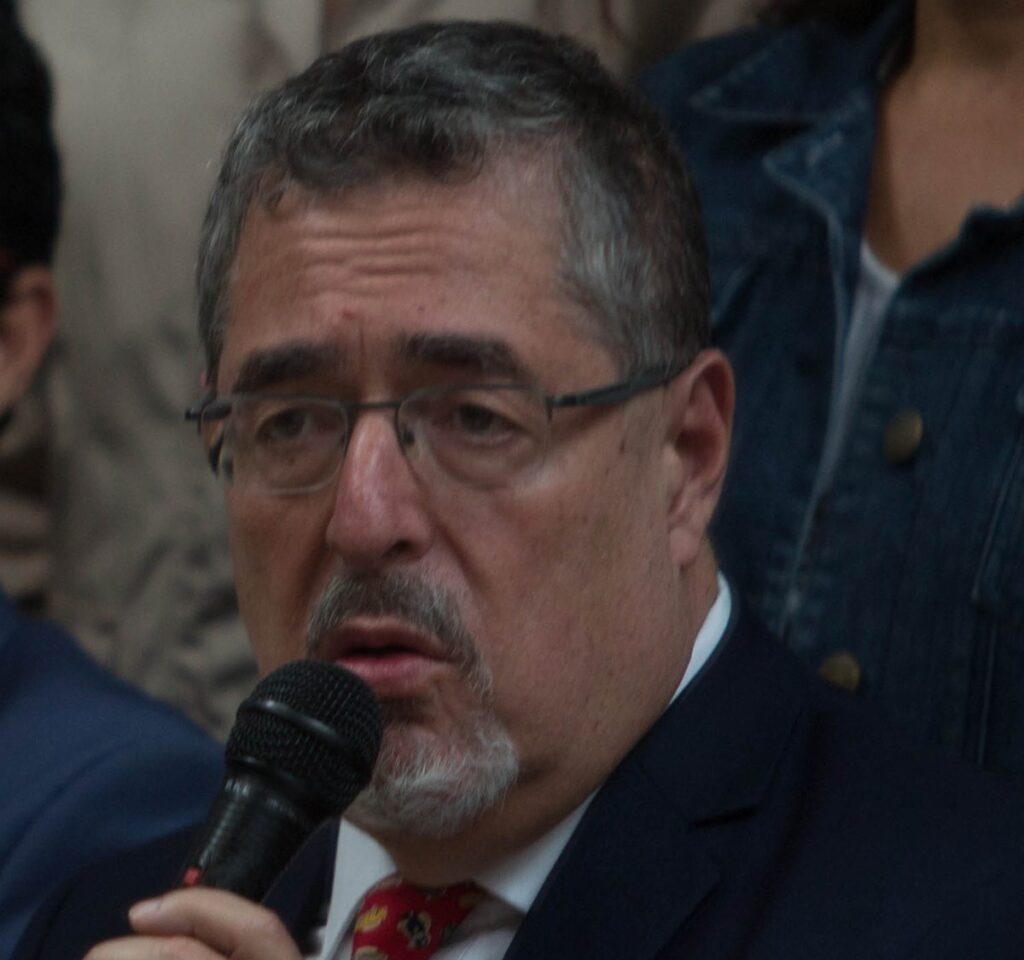On April 23, Guatemala's Bernardo Arevalo celebrated his 100th day in office as President of Guatemala. Mr. Arevalo, together with his ministers and the Movimiento Semilla party, held a commemoration ceremony on a pedestrian street in the historic center of Guatemala City.
“We came to government knowing that there are many challenges. One of them, and perhaps the most important, is the fight against corruption,” Arevalo told the crowd. “but [we continue] I am convinced that we are moving away from the swamp of corruption and towards dry land. ”
In his speech, he outlined seven areas his administration has been working on, including security, education, health care, wildfire response and transparency. However, as a daily newspaper in Guatemala, Plensa Libre They argue that many of these successes are questionable at best, and that the health sector is facing its worst crisis in decades as public hospitals lack medicine, electricity and doctors. He points out.
He used the opportunity to announce a 25 percent cut in the president's salary and signed the decree in front of onlookers. Prior to this, Guatemala's president was one of the highest-paid heads of state in the hemisphere, earning nearly $20,000 a month before Arevalo's pay cut.
But the biggest change Guatemala has seen is the president appearing before the people. One of Arévalo's first actions was to remove the fence surrounding the Presidential Palace and the National Palace, which had been installed by Jimmy Morales and maintained by the government of Alejandro Giammattei.
The crisis that Arevalo inherited is immense. But for many in Guatemala, he is not moving fast enough.
“Expectations were very high,” said Marilos Chan, an independent Guatemalan political analyst. progressive. “So it would be very difficult to meet them.”
However, as Dennis Aguilar writes on a Guatemalan research website, EP Investiga, the new president has not followed through on most of his promises in his first 100 days. Among these unfulfilled promises is the administration's failure to remove Attorney General Maria Consuelo Porras, a key figure in undermining the democratic order, resulting in slow-moving corruption. A new election promise was made to pursue the previous government.
Arevalo's appointment as president came as a surprise.
He campaigned on a firm anti-corruption platform and ran into a runoff against right-wing former first lady and politician Sandra Torres. Arevalo was easily elected president in the runoff election on August 20th.
Mr. Arevalo's father, Juan José Arevalo, was elected president in 1945 in the first democratic elections after the 1944 revolution, but after his election he faced attempts by pro-impunity groups to derail his candidacy. . The Constitutional Court ordered the rectification of the vote, and the Prosecutor's Office called for the closure of his party, Movimiento Semilla, as well as spreading accusations of fraud in the electoral process. These efforts continued until Arevalo's inauguration on January 14th.
Attempts to cast doubt on the historic victory were met with large-scale demonstrations, including encampments in front of the prosecutor's office, and lasted more than 100 days.
But attempts to cast doubt on this historic victory have been met with mass demonstrations, including encampments outside the prosecutor's office, and have lasted more than 100 days, led by indigenous communities across the country. These efforts were strengthened by support for Guatemala's fragile democracy from the United States, European Union, Canada, and Switzerland.
Efforts to combat corruption have become a top priority for the administration. Mr. Arevalo, for example, wants to fire hundreds of state employees who held false positions and root out graft networks from state institutions. According to President Arevalo, more than 1,300 positions have been eliminated.
However, the first 100 days were not without scandal. María José Iturbide, the environment minister of Arévalo, was fired on April 7 following reports about the misuse of state vehicles and the security of her daughter.
Overall, the Arevalo administration's efforts to combat corruption continue to lack a clear strategy.
Since taking office in January, President Arevalo has forged closer ties with the United States and the European Union. He traveled to the United States to meet with Vice President Kamala Harris and to Europe to meet with his leaders.
These conferences have primarily focused on addressing migration issues and bringing further investment into Guatemala to address the root causes of migration. However, the effects of these agreements will be felt in the future.
“As long as the most important branch of a powerful political coalition is in the public ministry, the threat to democracy will continue.”— Marielos Chan
“I think the president was much more comfortable in that diplomatic role than being the president of a country,” Chan said. However, we will need to assess the outcome of these types of negotiations in real time in the coming years. ”
Arevalo took office in January, but efforts to cast doubt on the 2023 election continue.
Although this limits the ability of political parties in Congress to enact legislation, it is important to note that legislation to open economic competition in the country, one of Mr. Arevalo's campaign promises, is currently being advanced. be.
“As long as the most important branch of the dominant political coalition is in the public ministry, the threat to democracy will continue,” Chan said.. “That is what the government must understand and must dedicate its efforts to saving and restoring the independence of the judiciary.”


